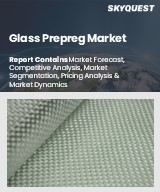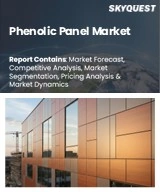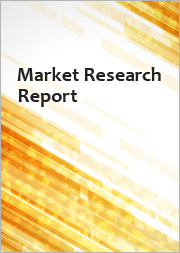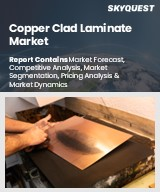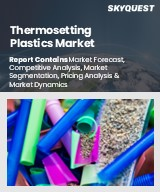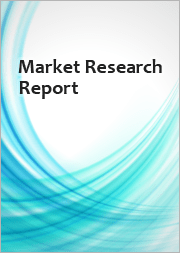
|
시장보고서
상품코드
1700020
파라아미노페놀 시장 : 형태, 등급, 판매 채널, 용도, 지역별 분석(-2032년)Para Aminophenol Market Forecasts to 2032 - Global Analysis By Form (Powder, Crystals, and Liquids), Grade, Sales Channel, Application and By Geography |
||||||
Stratistics MRC에 따르면 세계의 파라아미노페놀 시장은 2025년에 30억 1,000만 달러를 차지하고, 2032년에는 46억 3,000만 달러에 이를것으로 예측되며, 예측 기간 동안 CAGR은 6.3%로 성장할 전망입니다.
파라아미노페놀(PAP)은 화학식 C6H7NO의 유기 화합물입니다. 주로 진통제 및 해열제인 아세트아미노펜(파라세타몰)의 생산에 사용되는 결정성 고체입니다. PAP는 염료 및 안료 제조, 특히 섬유 산업과 사진 및 영상에 사용되는 특정 화학 물질 생산에도 사용됩니다. 제약, 화학, 화장품 등 다양한 산업 분야에서 다용도로 활용되고 있어 다양한 산업에서 중요한 원료로 사용되고 있습니다.
아세트아미노펜에 대한 수요 증가
파라세타몰로도 알려진 아세트아미노펜은 통증 완화 및 해열을 위한 일반의약품으로 널리 사용됩니다. 아세트아미노펜의 수요는 관절염, 수술 후 통증과 같은 만성 질환 및 통증 관리 관련 질환의 증가로 인해 증가하고 있습니다. 아세트아미노펜 소비 증가는 인구 고령화와 통증 관리 옵션에 대한 이해도 증가에 따른 결과이기도 합니다.
원자재 가격의 변동성
아닐린 및 기타 화학 전구체와 같은 주요 투입물의 가격 변동은 생산 비용에 직접적인 영향을 미치기 때문에 원자재 가격의 변동성은 파라-아미노페놀(PAP) 시장의 중요한 제약 요인입니다. 가격 불안정은 제조업체의 불확실성으로 이어져 일관된 가격 전략을 유지하는 데 영향을 미칠 수 있습니다. 또한 이러한 예측 불가능성으로 인해 기업은 수익 마진을 조정하거나 제품 가격을 인상하거나 생산 일정을 연기해야 할 수도 있습니다.
제약 산업의 확장
전 세계적으로, 특히 신흥국에서 의료 수요가 증가함에 따라 PAP로 생산되는 아세트아미노펜(파라세타몰)과 같은 일반의약품에 대한 수요가 증가하고 있습니다. 해열 및 통증 관리 요법의 인기가 높아짐에 따라 의약품 제조에서 PAP의 필요성은 더욱 증가하고 있습니다. 개발도상국에서도 의료 인프라의 발전과 의약품의 가용성 증가로 인해 PAP 사용이 증가하고 있습니다.
공급망 중단
파라아미노페놀(PAP) 시장은 공급망 중단으로 인해 원자재 가용성을 저해하고 제조 계획을 연기하며 유통망에 영향을 미칠 수 있는 심각한 도전을 받고 있습니다. 코로나19 팬데믹, 자연재해 또는 지정학적 긴장과 같은 상황으로 인해 필수 화학 전구체와 최종 제품의 운송이 지연될 수 있습니다. 이러한 차질로 인해 리드 타임이 늘어나고 운영 비용이 증가하며 시장에 출시되는 제품의 수가 줄어들 수 있습니다.
COVID-19의 영향
COVID-19의 대유행으로 공급망이 지연되고 제조 시설이 일시적으로 폐쇄되어 생산량에 영향을 미침으로써 파라아미노페놀(PAP) 시장이 혼란에 빠졌습니다. 그러나 사람들이 해열 및 통증 완화를 위해 일반의약품을 찾으면서 제약 분야, 특히 아세트아미노펜(파라세타몰)에 대한 PAP 수요가 급증했습니다.
전자 상거래 부문은 예측 기간 동안 가장 큰 규모가 될 전망
전자 상거래 부문은 제조업체와 공급업체가 원자재에 더 쉽게 접근할 수 있게 함으로써 예측 기간 동안 가장 큰 시장 점유율을 차지할 것으로 예상됩니다. 온라인 플랫폼은 기업이 제약, 화학 및 화장품 용도를 위한 PAP를 편리하게 조달할 수 있는 방법을 제공합니다. 또한 전자상거래는 직거래를 촉진하고 유통 비용을 절감하며, 특히 중소기업의 고객 기반을 넓혀 시장 접근성을 높이고 PAP 산업의 전반적인 성장에 기여합니다.
제약 부문은 예측 기간 동안 가장 높은 CAGR을 보일 전망
예측 기간 동안 제약 부문은 널리 사용되는 진통제 및 해열제 인 아세트아미노펜(파라세타몰)에 대한 수요 증가로 인해 가장 높은 성장률을 보일 것으로 예상됩니다. 전 세계적으로, 특히 신흥 시장에서 의료 수요가 증가함에 따라 진통제를 생산하는 PAP에 대한 수요도 계속 증가하고 있습니다.
점유율이 가장 높은 지역
예측 기간 동안 아시아태평양 지역은 급속한 산업화, 제약 생산 증가, 섬유 및 화장품 산업 확대로 인해 가장 큰 시장 점유율을 차지할 것으로 예상됩니다. 중국과 인도와 같은 국가에서 아세트아미노펜에 대한 수요 증가는 제약 부문에 연료를 공급하고, 염료 및 안료에 PAP의 사용 증가는 섬유 및 개인 관리 산업을 지원합니다. 또한 비용 효율적인 제조와 대규모 소비자 기반은 이 지역의 PAP 시장의 견고한 성장에 더욱 기여하고 있습니다.
CAGR이 가장 높은 지역
예측 기간 동안 북미 지역은 진통제 및 해열제에 대한 수요가 증가함에 따라 PAP 소비가 증가함에 따라 가장 높은 CAGR을 보일 것으로 예상됩니다.
무료 맞춤 설정 제공
이 보고서의 모든 고객에게는 다음 무료 사용자 지정 옵션 중 하나를 받을 수 있는 자격이 주어집니다.
- 기업 프로파일
- 추가 시장 기업의 종합적 프로파일링(최대 3개사)
- 주요 기업의 SWOT 분석(최대 3개사)
- 지역 세분화
- 고객의 관심에 응한 주요국 시장 추계, 예측 및 CAGR(타당성 확인에 따름)
- 경쟁 벤치마킹
- 제품 포트폴리오, 지리적 존재, 전략적 제휴에 기반한 주요 기업 벤치마킹
목차
제1장 주요 요약
제2장 서문
- 개요
- 이해관계자
- 조사 범위
- 조사 방법
- 데이터 마이닝
- 데이터 분석
- 데이터 검증
- 조사 접근
- 조사 자료
- 1차 조사
- 2차 조사
- 전제조건
제3장 시장 동향 분석
- 성장 촉진요인
- 억제요인
- 기회
- 위협
- 용도 분석
- 신흥 시장
- COVID-19의 영향
제4장 Porter's Five Forces 분석
- 공급기업의 협상력
- 구매자의 협상력
- 대체품의 위협
- 신규 참가업체의 위협
- 경쟁 기업간 경쟁 관계
제5장 세계의 파라아미노페놀 시장 : 형태별
- 분말
- 결정
- 액체
제6장 세계의 파라아미노페놀 시장 : 등급별
- 의약품 등급
- 기술 등급
제7장 세계의 파라아미노페놀 시장 : 판매 채널별
- 유통 채널
- 직접 판매
- 전자상거래
제8장 세계의 파라아미노페놀 시장 : 용도별
- 염색약 중간체
- 고무 화학 약품
- 제약
- 전자
- 기타 용도
제9장 세계의 파라아미노페놀 시장 : 지역별
- 북미
- 미국
- 캐나다
- 멕시코
- 유럽
- 독일
- 영국
- 이탈리아
- 프랑스
- 스페인
- 기타 유럽
- 아시아태평양
- 일본
- 중국
- 인도
- 호주
- 뉴질랜드
- 한국
- 기타 아시아태평양
- 남미
- 아르헨티나
- 브라질
- 칠레
- 기타 남미
- 중동 및 아프리카
- 사우디아라비아
- 아랍에미리트(UAE)
- 카타르
- 남아프리카
- 기타 중동 및 아프리카
제10장 주요 발전
- 계약, 파트너십, 협업, 합작투자
- 인수와 합병
- 신제품 발매
- 사업 확대
- 기타 주요 전략
제11장 기업 프로파일링
- BASF SE
- Lanxess AG
- Merck Group
- Eastman Chemical Company
- Sumitomo Chemical Co., Ltd.
- Hunan Lerk Pharmaceutical Co., Ltd.
- Aarti Industries Ltd.
- Arkema Group
- Daiichi Sankyo Co., Ltd.
- Chongqing Changfeng Chemical Co., Ltd.
- Anhui Bayi Chemical Industry Co., Ltd.
- Jiangsu Huanxin Pharmaceutical Co., Ltd.
- Shandong Xinhua Pharmaceutical Co., Ltd.
- Lianyungang Dongjin Chemical Co., Ltd.
- Taizhou Zhongtai Chemical Co., Ltd.
According to Stratistics MRC, the Global Para Aminophenol Market is accounted for $3.01 billion in 2025 and is expected to reach $4.63 billion by 2032 growing at a CAGR of 6.3% during the forecast period. Para-Aminophenol (PAP) is an organic compound with the chemical formula C6H7NO. It is a crystalline solid primarily used in the production of acetaminophen (paracetamol), a common analgesic and antipyretic. PAP is also employed in the manufacturing of dyes and pigments, especially in the textile industry, and in the production of certain chemicals used in photography and imaging. Its versatile applications in pharmaceuticals, chemicals, and cosmetics make it a critical raw material in various industries.
Market Dynamics:
Driver:
Growing demand for acetaminophen
Acetaminophen, also known as paracetamol, is widely used as an over-the-counter medication for pain relief and fever reduction. The need for acetaminophen is being driven by the rising incidence of chronic illnesses and pain-management-related ailments such arthritis and post-operative pain. Increased acetaminophen consumption is also a result of the aging population and growing understanding of pain management options. Since acetaminophen is made from roughly 80% of PAP produced worldwide, the market for acetaminophen has a direct impact on PAP demand.
Restraint:
Volatility in raw material prices
Volatility in raw material prices is a significant restraint for the Para-Aminophenol (PAP) market, as fluctuations in the cost of key inputs, such as aniline and other chemical precursors, directly affect production costs. Price instability can lead to uncertainty for manufacturers, impacting their ability to maintain consistent pricing strategies. This unpredictability may also force companies to adjust their profit margins, increase product prices, or delay production schedules. Additionally, reliance on suppliers from different regions, with varying economic conditions, further exacerbates the challenge, making it difficult for companies to plan and manage production costs effectively in the long term.
Opportunity:
Expansion of pharmaceutical industry
The increased demand for over-the-counter drugs like acetaminophen (paracetamol), which is produced from PAP, is a result of the growing healthcare demands worldwide, especially in emerging nations. The necessity for PAP in pharmaceutical manufacture is further increased by the rising popularity of fever-reducing and pain-management therapies. PAP use is also increased in developing nations due to the development of healthcare infrastructure and increased availability to pharmaceuticals. This expansion is expected to support continued growth in the pharmaceutical segment of the PAP market.
Threat:
Supply chain disruptions
The para-aminophenol (PAP) market is severely challenged by supply chain interruptions, which can impair raw material availability, postpone manufacturing plans, and have an impact on distribution networks. Transportation of essential chemical precursors and final goods may be delayed by occurrences such as the COVID-19 pandemic, natural disasters, or geopolitical tensions. Increased lead times, greater operating expenses and perhaps fewer products available on the market are the results of these disruptions. Additionally, manufacturers might have trouble finding reliable sources of raw materials at affordable costs, which could affect their capacity to satisfy demand and stay profitable.
Covid-19 Impact:
The COVID-19 pandemic disrupted the Para-Aminophenol (PAP) market by causing supply chain delays and temporary closures of manufacturing facilities, affecting production volumes. However, the demand for PAP in pharmaceutical applications, particularly for acetaminophen (paracetamol), surged as people sought over-the-counter medications for fever and pain relief. The pharmaceutical sector showed resilience, while the textile and dye industries faced slowdowns. Post-pandemic recovery is expected to drive steady growth in the PAP market.
The E-commerce segment is expected to be the largest during the forecast period
The E-commerce segment is expected to account for the largest market share during the forecast period driven by enabling easier access to raw materials for manufacturers and suppliers. Online platforms offer a convenient way for businesses to procure PAP for pharmaceutical, chemical, and cosmetic applications. E-commerce also facilitates direct transactions, reduces distribution costs, and widens the customer base, particularly for small and medium-sized enterprises, contributing to increased market accessibility and overall growth in the PAP industry.
The pharmaceuticals segment is expected to have the highest CAGR during the forecast period
Over the forecast period, the pharmaceuticals segment is predicted to witness the highest growth rate due to the rising demand for acetaminophen (paracetamol), a widely used analgesic and antipyretic. As healthcare needs rise globally, especially in emerging markets, the demand for PAP to produce pain relief medications continues to increase. Additionally, advancements in healthcare infrastructure and expanding over-the-counter drug accessibility further boost the demand for PAP in the pharmaceutical industry.
Region with largest share:
During the forecast period, the Asia Pacific region is expected to hold the largest market share driven by rapid industrialization, growing pharmaceutical production, and expanding textile and cosmetic industries. The rising demand for acetaminophen in countries like China and India fuels the pharmaceutical sector, while the increasing use of PAP in dyes and pigments supports the textile and personal care industries. Moreover, cost-effective manufacturing and a large consumer base further contribute to the robust growth of the PAP market in this region.
Region with highest CAGR:
Over the forecast period, the North America region is anticipated to exhibit the highest CAGR, due to the growing demand for pain relievers and fever-reducing medications boosts PAP consumption. Additionally, North America's well-established pharmaceutical sector fosters market expansion, while increasing demand for advanced dyes in textiles and cosmetics further drives growth. This trend strengthens the region's influence in the global PAP market.
Key players in the market
Some of the key players in Para Aminophenol Market include BASF SE, Lanxess AG, Merck Group, Eastman Chemical Company, Sumitomo Chemical Co., Ltd., Hunan Lerk Pharmaceutical Co., Ltd., Aarti Industries Ltd., Arkema Group, Daiichi Sankyo Co., Ltd., Chongqing Changfeng Chemical Co., Ltd., Anhui Bayi Chemical Industry Co., Ltd., Jiangsu Huanxin Pharmaceutical Co., Ltd., Shandong Xinhua Pharmaceutical Co., Ltd., Lianyungang Dongjin Chemical Co., Ltd., and Taizhou Zhongtai Chemical Co., Ltd.
Key Developments:
In January 2025, BASF's Personal Care business is launching a new ingredient, VitaGuard (R)A to capture the continuous market demand for retinol, while reinforcing its position as a Hero ingredient in cosmetics. This latest innovation is based on the encapsulation of free retinol. VitaGuard(R) A was developed using patented solid lipid particles, protecting retinol from degradation, limiting skin irritation and allowing better skin bioavailability for improved cosmetic efficacy.
In January 2025, Eastman introduced the latest innovation in its sustainable fiber portfolio today at Heimtextil trade fair in Frankfurt, Germany. Eastman Naia(TM) Renew cellulosic fiber for fill applications expands beyond the brand's success in bedding and towels. The fiber transforms comforters and quilts with breathable comfort, luxurious softness and unparalleled ease of care.
Forms Covered:
- Powder
- Crystals
- Liquids
Grades Covered:
- Pharmaceutical Grade
- Technical Grade
Sales Channels Covered:
- Distribution Channels
- Direct Sales
- E-commerce
Applications Covered:
- Hair Dye Intermediates
- Rubber Chemicals
- Pharmaceuticals
- Electronics
- Other Applications
Regions Covered:
- North America
- US
- Canada
- Mexico
- Europe
- Germany
- UK
- Italy
- France
- Spain
- Rest of Europe
- Asia Pacific
- Japan
- China
- India
- Australia
- New Zealand
- South Korea
- Rest of Asia Pacific
- South America
- Argentina
- Brazil
- Chile
- Rest of South America
- Middle East & Africa
- Saudi Arabia
- UAE
- Qatar
- South Africa
- Rest of Middle East & Africa
What our report offers:
- Market share assessments for the regional and country-level segments
- Strategic recommendations for the new entrants
- Covers Market data for the years 2024, 2025, 2026, 2028, and 2032
- Market Trends (Drivers, Constraints, Opportunities, Threats, Challenges, Investment Opportunities, and recommendations)
- Strategic recommendations in key business segments based on the market estimations
- Competitive landscaping mapping the key common trends
- Company profiling with detailed strategies, financials, and recent developments
- Supply chain trends mapping the latest technological advancements
Free Customization Offerings:
All the customers of this report will be entitled to receive one of the following free customization options:
- Company Profiling
- Comprehensive profiling of additional market players (up to 3)
- SWOT Analysis of key players (up to 3)
- Regional Segmentation
- Market estimations, Forecasts and CAGR of any prominent country as per the client's interest (Note: Depends on feasibility check)
- Competitive Benchmarking
- Benchmarking of key players based on product portfolio, geographical presence, and strategic alliances
Table of Contents
1 Executive Summary
2 Preface
- 2.1 Abstract
- 2.2 Stake Holders
- 2.3 Research Scope
- 2.4 Research Methodology
- 2.4.1 Data Mining
- 2.4.2 Data Analysis
- 2.4.3 Data Validation
- 2.4.4 Research Approach
- 2.5 Research Sources
- 2.5.1 Primary Research Sources
- 2.5.2 Secondary Research Sources
- 2.5.3 Assumptions
3 Market Trend Analysis
- 3.1 Introduction
- 3.2 Drivers
- 3.3 Restraints
- 3.4 Opportunities
- 3.5 Threats
- 3.6 Application Analysis
- 3.7 Emerging Markets
- 3.8 Impact of Covid-19
4 Porters Five Force Analysis
- 4.1 Bargaining power of suppliers
- 4.2 Bargaining power of buyers
- 4.3 Threat of substitutes
- 4.4 Threat of new entrants
- 4.5 Competitive rivalry
5 Global Para Aminophenol Market, By Form
- 5.1 Introduction
- 5.2 Powder
- 5.3 Crystals
- 5.4 Liquids
6 Global Para Aminophenol Market, By Grade
- 6.1 Introduction
- 6.2 Pharmaceutical Grade
- 6.3 Technical Grade
7 Global Para Aminophenol Market, By Sales Channel
- 7.1 Introduction
- 7.2 Distribution Channels
- 7.3 Direct Sales
- 7.4 E-commerce
8 Global Para Aminophenol Market, By Application
- 8.1 Introduction
- 8.2 Hair Dye Intermediates
- 8.3 Rubber Chemicals
- 8.4 Pharmaceuticals
- 8.5 Electronics
- 8.6 Other Applications
9 Global Para Aminophenol Market, By Geography
- 9.1 Introduction
- 9.2 North America
- 9.2.1 US
- 9.2.2 Canada
- 9.2.3 Mexico
- 9.3 Europe
- 9.3.1 Germany
- 9.3.2 UK
- 9.3.3 Italy
- 9.3.4 France
- 9.3.5 Spain
- 9.3.6 Rest of Europe
- 9.4 Asia Pacific
- 9.4.1 Japan
- 9.4.2 China
- 9.4.3 India
- 9.4.4 Australia
- 9.4.5 New Zealand
- 9.4.6 South Korea
- 9.4.7 Rest of Asia Pacific
- 9.5 South America
- 9.5.1 Argentina
- 9.5.2 Brazil
- 9.5.3 Chile
- 9.5.4 Rest of South America
- 9.6 Middle East & Africa
- 9.6.1 Saudi Arabia
- 9.6.2 UAE
- 9.6.3 Qatar
- 9.6.4 South Africa
- 9.6.5 Rest of Middle East & Africa
10 Key Developments
- 10.1 Agreements, Partnerships, Collaborations and Joint Ventures
- 10.2 Acquisitions & Mergers
- 10.3 New Product Launch
- 10.4 Expansions
- 10.5 Other Key Strategies
11 Company Profiling
- 11.1 BASF SE
- 11.2 Lanxess AG
- 11.3 Merck Group
- 11.4 Eastman Chemical Company
- 11.5 Sumitomo Chemical Co., Ltd.
- 11.6 Hunan Lerk Pharmaceutical Co., Ltd.
- 11.7 Aarti Industries Ltd.
- 11.8 Arkema Group
- 11.9 Daiichi Sankyo Co., Ltd.
- 11.10 Chongqing Changfeng Chemical Co., Ltd.
- 11.11 Anhui Bayi Chemical Industry Co., Ltd.
- 11.12 Jiangsu Huanxin Pharmaceutical Co., Ltd.
- 11.13 Shandong Xinhua Pharmaceutical Co., Ltd.
- 11.14 Lianyungang Dongjin Chemical Co., Ltd.
- 11.15 Taizhou Zhongtai Chemical Co., Ltd.






